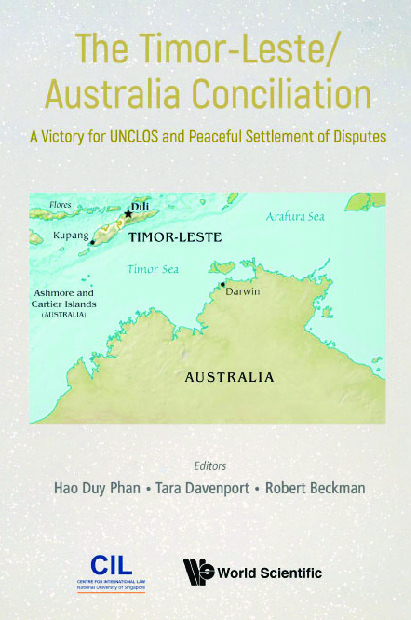Timor-leste/australia Conciliation, The
Timor-leste/australia Conciliation, The
On 11 April 2016, Timor-Leste initiated a compulsory non-binding conciliation proceeding against Australia under Annex V of the United Nations Convention on the Law of the Sea (UNCLOS) on its maritime boundary dispute with Australia in the Timor Sea....
Read more
On 11 April 2016, Timor-Leste initiated a compulsory non-binding conciliation proceeding against Australia under Annex V of the United Nations Convention on the Law of the Sea (UNCLOS) on its maritime boundary dispute with Australia in the Timor Sea. On 6 March 2018, the parties signed a settlement treaty on the basis of the proposal of the Conciliation Commission. Two months later, the Conciliation Commission issued its report, marking the conclusion of the first ever conciliation proceeding under Annex V of UNCLOS.This book provides detailed analyses of the proceedings and a step-by-step account of the conciliation process, as well as its wider implications for dispute settlement under UNCLOS and beyond. The various chapters explore a wide range of issues, including an overview of conciliation as a means of dispute settlement and the conciliation procedure in UNCLOS, as well as the origins and historical background of the maritime boundary dispute between Timor-Leste and Australia. The book also provides a comprehensive examination of each step of the conciliation proceedings, including the role of the Conciliation Commission, the Conciliation Commission's Decision on Competence, the issue of joint development, and the Maritime Boundaries Treaty, which Timor-Leste and Australia concluded as the legal outcome of the conciliation proceedings. Critically, the book offers insightful perspectives from Australia and Timor-Leste on the conciliation process. The book is an important contribution to the research and analysis of the Timor Sea conciliation. As one of the first books on the case, it will raise awareness and bring more familiarity with conciliation as a viable and effective dispute settlement process, thereby encouraging states to consider conciliation as a means to settle their disputes.
Less







.jpg)





















